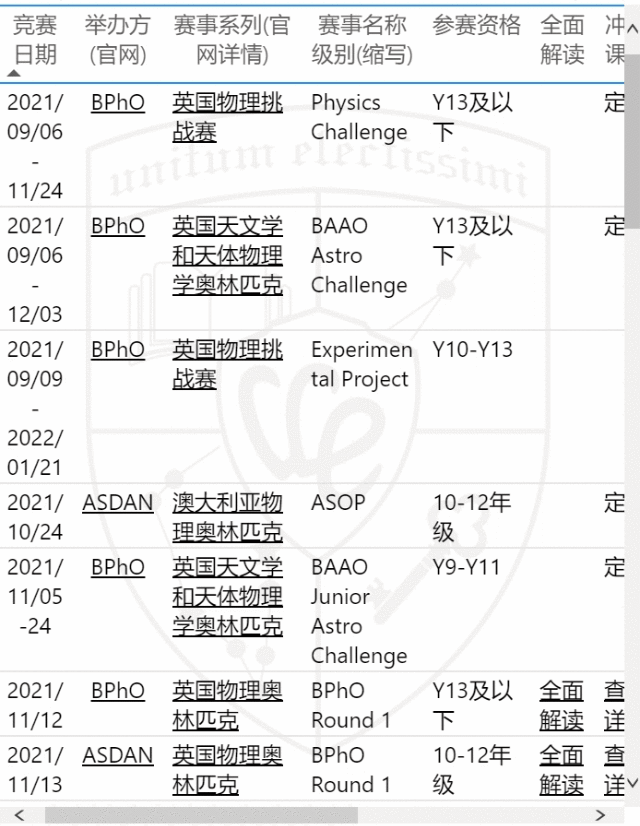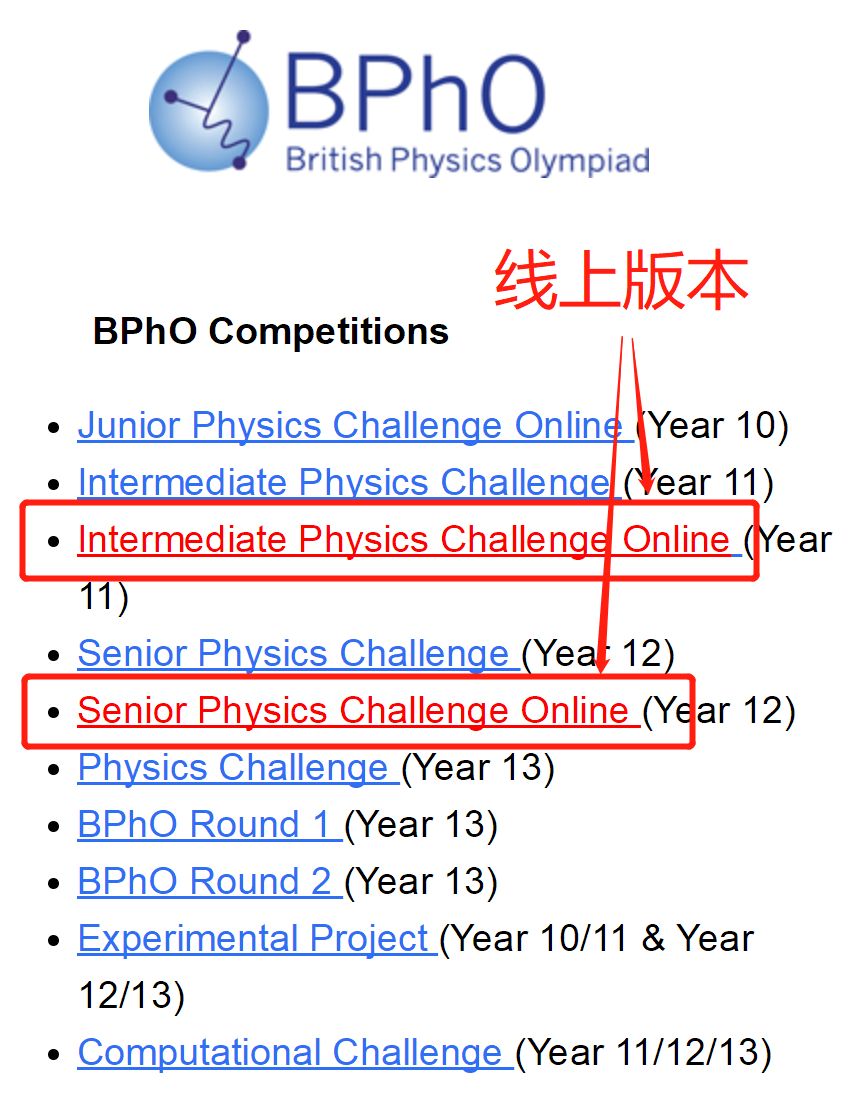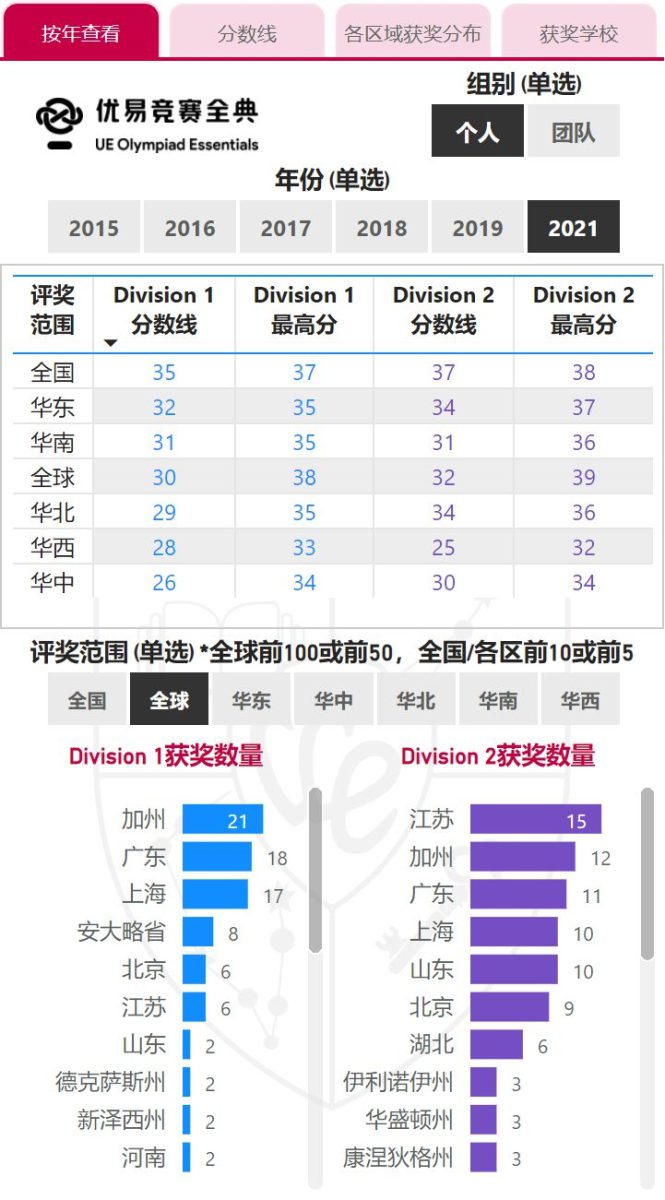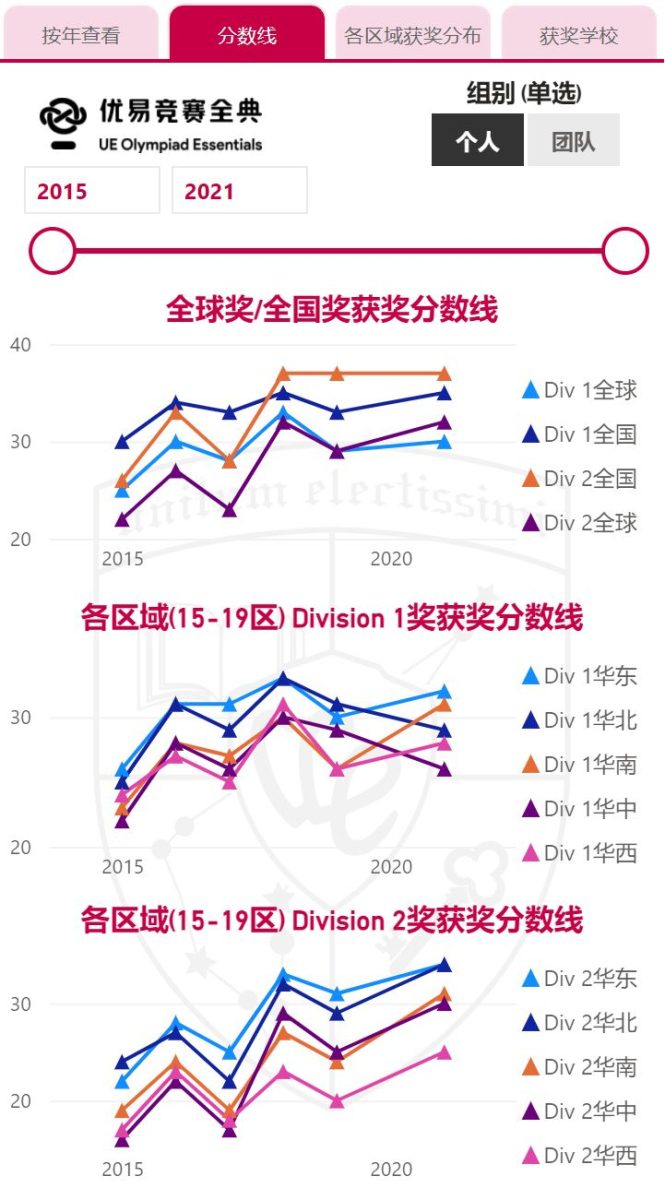3 minutes to teach you how to plan a contest.
I.What are the main international physics competitions?
Before the release of the “National Competition Activities Management Measures for Middle and Elementary School Students” by the Ministry of Education in March 2022, students from Mainland China were able to participate in some of the physics competitions held by countries such as the United States, the United Kingdom, Australia, and Canada, including:
- The American Physics Bowl
- The British Physics Olympiad
- The British Astronomy Olympiad
- The Australian Physics Olympiad
- The Canadian Physics Olympiad
- The Princeton Physics Competition
- The British Physics Challenge
- The Waterloo Newton Physics Contest

For a complete list of the above competitions, refer to the latest “International Competitions Calendar” published by UYI International Education, or scan the QR code to follow “UE Essentials” and enter from the public account menu.
II. Factors to Consider
When Choosing a Competition When choosing a physics competition, the main factors to consider are:
- Interest in learning the subject of physics
- The prestige of the competition
- Current grade level
- The educational curriculum system being studied
- Future field of study
- Target universities for application
Teacher Xie Tao has provided a brief interpretation of these factors in the video above.
III. Does Greater Difficulty in a Competition Equate to Higher Prestige?
Competitions of lower difficulty certainly do not carry much prestige. For example, the recent online version of the British Physics Challenge, consisting solely of multiple-choice questions with difficulty akin to regular practice, has a high proportion of higher-level awards, so it can hardly be considered prestigious.

However, more difficult competitions do not necessarily have higher prestige. Take the Princeton Physics Competition (PUPC), for instance, which demands a high level of advanced mathematics and physics knowledge from its participants. But this competition has few participants, lacks a multi-level selection mechanism, and (for Chinese students) comes with high participation costs, making it less popular. Without enough competitors to contend with, the significance of its awards and hence its prestige are naturally diminished.

Taking the Physics Bowl as an example, competitions that generally have higher prestige share the following characteristics:
1. A Large Number of Participants, Broad Coverage

As shown, in 2021, the regions with the highest number of award recipients in Division 1 of the Physics Bowl were California in the USA, Guangdong and Shanghai in China, and Ontario in Canada, as well as Beijing and Jiangsu. The top ten regions for Division 2 awards were also widely distributed across the US and various provinces in China. This indicates that the Physics Bowl competition has a broad geographic distribution of participants.
2. Transparent Judging, Reasonable Award Settings

The Physics Bowl competition annually publishes the award cut-off scores for each level and region. From the chart, it can be seen that as the number of participating Chinese students increases, the award cut-off scores are trending higher, meaning that the difficulty of winning global awards is also increasing. This raises the prestige of the Physics Bowl’s global awards.
3. Fairness of Competition
This is mainly viewed from two aspects: first, whether the invigilation of the competition is strict and whether there is a general occurrence of cheating; second, whether the judging mechanism is reasonable.
The Physics Bowl and the British Physics Olympiad BPhO, despite some flaws, are generally considered to have relatively high prestige among the many international physics competitions.
IV. How to Plan for Competitions for Physics and Engineering Courses?
Students aspiring to apply for physics or engineering majors at world-renowned universities should be selective when planning competitions and not participate in various physics competitions indiscriminately.
1. Mathematics is the foundation of physics, participate selectively in math competitions
Generally, students who are good at physics are also good at mathematics, and it is suggested to participate in one or two math competitions to improve mathematical skills. For example, American math competitions or British math challenge competitions are worth attempting.
However, the main focus in the future will be on physics and engineering, so physics competitions should take precedence, with math competitions as a supplementary activity.
2. Start preparing for physics competitions as early as 9th grade
Most 9th and 10th graders are suited for physics competitions that are not very difficult, and the awards are not that important. The main purpose of participating in competitions at this stage is to cultivate interest.
3. Start gearing up for competitions in 10th grade
Students aiming for American universities can start enhancing the difficulty level of their high school physics studies to prepare for competitions like the Physics Bowl or the F=ma mechanics competition. For students targeting British universities, it is suggested to aim for the British Physics Olympiad (BPhO 1) and the Advanced Physics Challenge, ensuring that the regular study and practice difficulty matches the required level.
4. Sprint for higher-level physics competition awards in 11th grade
Most students do not win high-level awards in the Physics Bowl or BPhO 1 in the 10th grade, so it is essential to do everything possible to win top awards in one or both of these competitions in the 11th grade, such as being in the top 100 of the Physics Bowl globally or winning the BPhO 1 gold or super gold awards.



